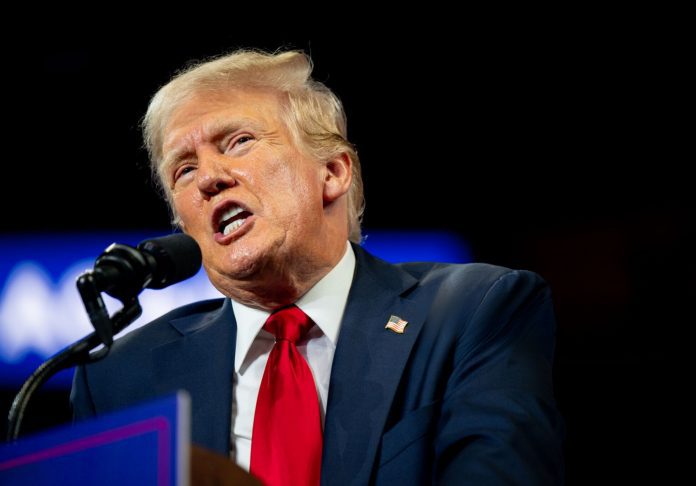In a speech at the Detroit Economic Club on Thursday, former President Donald Trump announced his support for making interest on car loans fully tax-deductible, comparing it to the existing mortgage interest deduction. This proposal is part of a broader package of tax cuts Trump has unveiled in the lead-up to the November 5 election, where he faces Democratic nominee Vice President Kamala Harris.
If elected, Trump also vowed to block Chinese-made autonomous vehicles from operating on U.S. roads, citing concerns about China’s growing influence in the automotive sector. This mirrors a recent proposal by the Biden administration, which has similarly targeted China’s automotive industry. Trump’s remarks underscored his tough stance on China, which he framed as a significant threat to American jobs and economic security.
In his speech, Trump promised to renegotiate the U.S.-Mexico-Canada Agreement (USMCA) to address what he described as China’s efforts to establish auto manufacturing plants in Mexico. He threatened to impose tariffs as high as 100% on foreign-made vehicles to protect U.S. jobs and manufacturing.
Throughout the campaign, Trump has proposed a series of tax breaks aimed at various groups, including eliminating taxes on service workers’ tips and seniors’ Social Security benefits. He has also called for reinstating the full deduction on state and local taxes, a provision that his administration capped in 2017. Additionally, Trump has proposed slashing the corporate tax rate to 15% for companies that manufacture within the U.S.
However, Trump’s tax plans have drawn criticism from economists, who warn that these measures could result in trillions of dollars in lost federal revenue. His plan to impose widespread tariffs on imported goods also raises concerns about potential trade disruptions and their impact on the U.S. economy.
Trump’s proposals signal his focus on protecting U.S. manufacturing jobs, especially in the automotive sector, while courting voters in key industrial states like Michigan. However, any changes to the tax code or trade agreements would require approval from Congress, which holds constitutional authority over such matters.



